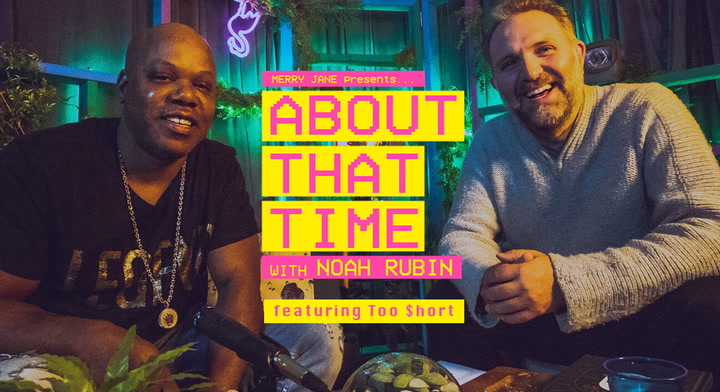This September, New York’s NBC affiliate reported that Manhattan’s Union Square, one of the most densely populated and often-visited areas of the city, will play host to the borough’s first medical marijuana dispensary beginning in January 2016. But New Yorkers having visions of walking into a storefront like their Californian friends, flashing an ID and walking out with a joint or some brownies should pump the proverbial brakes. We’re nowhere near a legal cannabis culture in New York State, where the political machine thrives off the status quo so much that despite the five boroughs passing a decriminalization law in 1977, city and state law enforcement didn’t publicly recognize it until 2014. The Union Square dispensary will reflect the restrictive nature of New York’s heralded medical cannabis law, which among other limits forbids smoking cannabis in any way.
On July 5, 2014, the New York State legislature voted on the state’s first medical marijuana law, which would finally allow New York patients access to medication in their hometown. While cannabis campaigners may have rejoiced at the headlines, it quickly became clear that New York’s law contained very little to celebrate. As a sadly typical hysteria swept Albany’s halls, New York’s lawmakers did their level best to limit the availability of medical cannabis as well as reaffirm their commitment to Rockefeller Law-era treatment of marijuana offenders. The most ridiculous objections came from the senate majority leader, Long Island republican Dean Skelos—who ridiculously lamented the possibility of New Yorkers “walking around with 10 joints behind each ear”—but more on him later. By the following March the effects of the law, ironically called the “Compassionate Care Act” had caused some in the assembly and senate to call the new law draconian at best and cruelly unusual at worst.
Standing in almost comical contrast to much of New York’s State legislature, Richard Gottfried is the assemblyman for Chelsea, Hell’s Kitchen, Murray Hill, Midtown and parts of the Lincoln Center area of Manhattan, a constituency he has loyally represented for four decades. He consistently earns a place on the ACLU’s “honor roll,” campaigns for universal health care and equal rights for women, minorities and the LGBTQ community. In 1997, he introduced the first incarnation of the Compassionate Care Act, which in its original form would have given New York one of the earliest and most comprehensive medical cannabis infrastructures in the country. His 18 year crusade to change New York’s attitude toward cannabis has slowly begun to erode the status quo despite the best efforts of those across the aisle.
Most importantly, he is not now and has never been under indictment for corruption, which is more than New York’s last five senate majority leaders can say. But unfortunately for New Yorkers, it is not people like Gottfried who tend to hold sway over the New York legislature. It’s men like Dean Skelos, mentioned earlier, who accentuated his Reagan-templated, hair-helmeted reactionary style with levels of nepotism and corruption that were conspicuous even for New York’s powerful clique. Both Skelos and his son are currently on trial, and he has resigned his position in the legislature, but his fear-of-change-based politics—explained pretty simply in a 2014 ad by a mother whose daughter was being denied vital medication thanks to Skelos’s blocking of a vote on the Compassionate Care Act—are still somewhat in vogue in Albany. While no one seems to want to block the availability of CBD oils anymore—bringing New York up to speed with progressive strongholds like Alabama—New York’s medical laws reflect the incredible amount of outside interests at play in what is widely considered one of the most corrupt legislative bodies in the U.S. As elsewhere in the country, entities like businesses, banks and churches have their say in government for better and worse, but in New York the amount of voices creates a legendary political deadlock.
In an article for Staten Island Live, the Dean Emeritus of the Hugh L. Carey Institute for Government Reform, Dr. Seymour P. Lachman, posed and answered a question: “How and why is the New York State Legislature as corrupt as it is?…There is a complete lack of transparency: no one except for the speaker of the Assembly, the majority leader of the state Senate, and their senior staffs know what is going on.” As long as those leaders continue to buy into dated notions of medical care with regards to cannabis, how can we realistically hope that a recreational culture is on the horizon? The good news is that as the country at large begins to rethink its attitudes about cannabis, politicians like Richard Gottfried are doubling down on their efforts to break down the barriers to legalization in the legislature. And as they continue their work, Gottfried and colleagues like Sen. Liz Krueger and Assemblywoman Crystal Peoples-Stokes represent the rising tide. Conservatives in the state legislature may continue to attempt to stem it, but sooner or later the wave of progress will overtake them. The only question is how long it will take, and in New York waiting for change is a long-term proposition.




![Snoop Dogg Plays Madden 20 with his Homies in the GGL VIII Championship [PART 8]](https://merryjane.com/wp-content/uploads/2024/04/1575592192985_ScreenShot2019-12-05at4.29.42PM.png)






